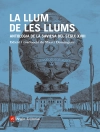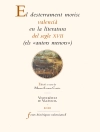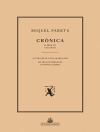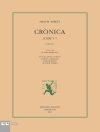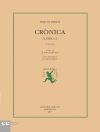In the late spring of 1718 near the village of Pozarevac (German Passarowitz) in northern Serbia, freshly conquered by Habsburg forces, three delegations representing the Holy Roman Emperor, Ottoman Sultan, and the Republic of Venice gathered to end the conflict that had begun three and a half years earlier. The fighting had spread throughout southeastern Europe, from Hungary to the southernmost tip of the Peloponnese. The peace redrew the map of the Balkans, extending the reach of Habsburg power, all but expelling Venice from the Greek mainland, and laying the foundations for Ottoman revitalization during the Tulip period. In this volume, twenty specialists analyze the military background to and political context of the peace congress and treaty. They assess the immediate significance of the Peace of Passarowitz and its longer term influence on the society, demography, culture, and economy of central Europe.
İçerik tablosu
Acknowledgments
List of Figures, Illustrations, and Maps
General Outlook
The Habsburg-Ottoman Wars and the Modern World, by Charles Ingrao
The Peace of Passarowitz, 1718: An Introduction, by Nikola Samardžić
The Peace of Passarowitz in the Historical Sciences, 1718–1829, by Martin Peters
International Relations, Diplomacy, and Warfare
The Impact of the Treaty of Passarowitz on the Habsburg Monarchy, by Harald Heppner and Daniela Schanes
The Peace of Passarowitz in Venice’s Balkan Policy, by Egidio Ivetic
Twists and Turns in the Diplomatic Dialogue: the Politics of Peacemaking in the Early Eighteenth Century, by Rhoads Murphey
The Ottoman Wars and the Changing Balance of Power along the Danube in the Early Eighteenth Century, by Gábor Ágoston
Society, Economy, and Trade
The Influence of the Peace of Passarowitz on Bosnia, by Enes Pelidija
The Crimean Tatars and the Austro-Ottoman Wars, by Dan D. Y. Shapira
Making a Prosperous Peace: Habsburg Diplomacy and Economic Policy at Passarowitz, by Jovan Pešalj
Implementation of the Commercial Treaty of Passarowitz and the Austrian Merchants, 1720-1750, by Numan Elibol and Abdullah Mesud Küçükkalay
The Navigation and Trade Agreement of 1718 and Ottoman Orthodox Merchants in Croatia and the Military Border, by Hrvoje Petrić
The Habsburg-Ottoman War of 1716–1718 and Demographic Changes in War-Afflicted Territories, by Vojin S. Dabić
The Peace of Passarowitz and the Re-establishment of the Catholic Diocesan Administration in Belgrade and Smederevo, by Katarina Mitrović
Ideas, Arts, and Culture
Tracking the Mapmaker: The Role of Marsigli’s Itineraries and Surveys at Karlowitz and Passarowitz, by Jelena Mrgić
The Festival Book for the Exchange of Austrian and Turkish Deputations in 1719, by Ana Milošević
The Emergence of the Baroque in Belgrade, by Nikola Samardžić
Patriotism and Propaganda: Habsburg Media Promotion of the Peace Treaty of Passarowitz, by Vladimir Simić
List of Contributors
Index
Yazar hakkında
Charles Ingrao is Professor of History at Purdue University. He has authored or edited many books on central Europe. He is founding editor of H-Net’s HABSBURG discussion group and has served as editor of The Austrian History Yearbook (1997-2006). He is presently completing a book (with Bruce Pauley) on ethnic conflict in central Europe and directs the Scholars’ Initiative, an international consortium of scholars dedicated to confronting the controversies of the recent Yugoslav wars.
Jovan Pešalj is a teaching fellow at the Department of History, University of Belgrade.


